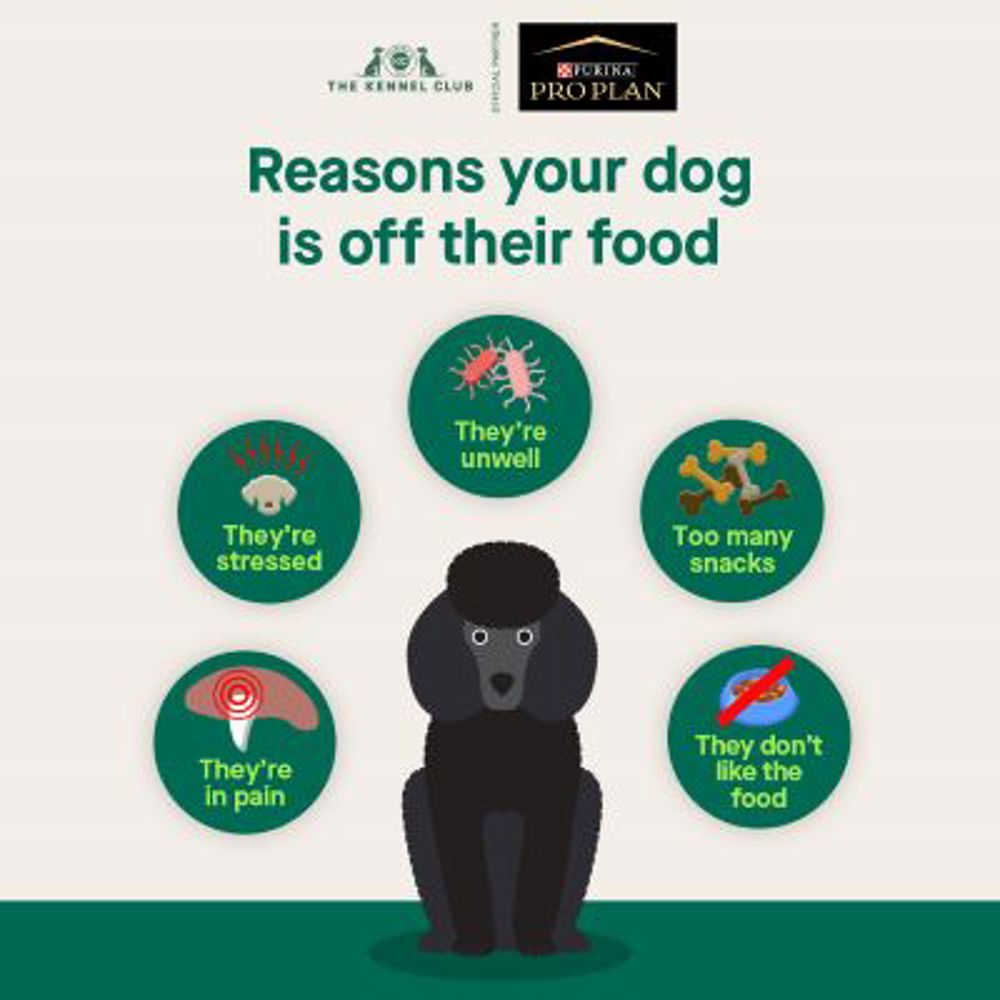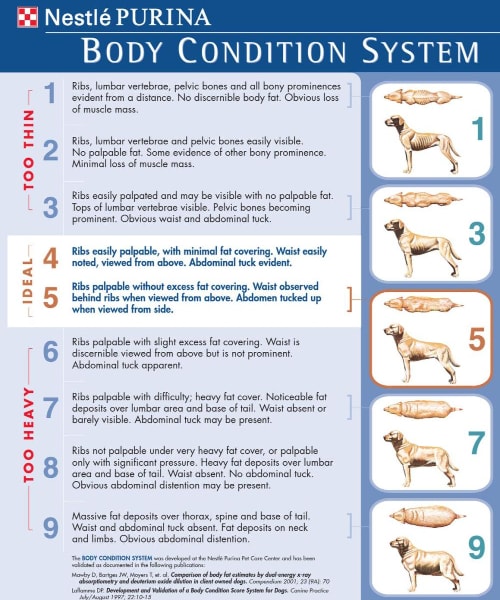Is your/ my Dog Isn’t Eating But Acting Normal? It’s both puzzling and concerning when your furry friend turns their nose up at dinner yet still wags their tail, plays, and seems perfectly healthy. Before you panic, let’s explore the possible reasons—from harmless quirks to hidden health cues.
You might find yourself asking, “Why is this happening? ” or “Should I be worried? ” The truth is, there are several reasons why your dog might skip a meal, from minor changes in routine to potential health issues. It’s essential to understand what might be going on to ensure your pet stays happy and healthy.
We’ll explore the various factors that could be influencing your dog’s appetite and what steps you can take to encourage them to eat again. Let’s dive in and uncover the answers you need!
Possible Causes Of Loss Of Appetite
Loss of appetite in dogs, while they seem healthy, can arise from various factors. Stress, dental issues, or a recent change in diet might affect their eating habits. Observing your dog closely and consulting a vet if the issue persists is essential for their well-being.

Possible Causes of Loss of Appetite When your dog isn’t eating but appears to be acting normally, it can be concerning. You might wonder what could be causing this sudden change in behavior. Understanding the possible causes of loss of appetite can help you identify any underlying issues and decide on the next steps. Dental health plays a crucial role in your dog’s appetite. If your furry friend has dental issues, such as gum disease or broken teeth, eating can become painful. Watch for signs like drooling, bad breath, or difficulty chewing. These may indicate that a trip to the vet is necessary.
Recent Vaccinations
Has your dog recently received vaccinations? This can sometimes lead to a temporary loss of appetite. While most dogs return to their usual eating habits within a day or two, keep an eye on them. If the appetite doesn’t improve, consult your vet.
Stress Or Anxiety
Dogs can be sensitive to changes in their environment. New people, loud noises, or changes in routine might cause stress. If your dog seems anxious, try to create a calm space for them. Regular playtime and affection can help ease their worries and may encourage them to eat. Gastrointestinal problems can also lead to a decreased appetite. Conditions such as an upset stomach or parasites can make your dog feel unwell. Look for signs like vomiting, diarrhea, or lethargy. If you notice these symptoms, it’s essential to seek veterinary advice.
Food Preferences
Sometimes, your dog may simply be bored with their food. Just like us, they can have favorites and may refuse to eat something that no longer excites them. Consider trying a different brand or flavor. You might be surprised how quickly they return to their bowl!
Age-related Changes
As dogs age, their metabolism and appetite may change. Older dogs might not eat as much as they used to. Monitor your senior dog’s overall health and discuss any concerns with your vet. Adjusting their diet could make a significant difference.
Underlying Medical Conditions
Loss of appetite can also signal serious health issues, such as kidney disease or cancer. These conditions can affect your dog’s desire to eat. If your dog continues to refuse food for more than a couple of days, it’s crucial to consult a veterinarian to rule out any serious concerns. Understanding why your dog isn’t eating can be a puzzle. By considering these possible causes, you can take proactive steps to ensure your pet’s health and well-being. What changes have you noticed in your dog’s behavior? Your observations could be key to addressing their appetite issues effectively.
Stress And Anxiety
Stress and anxiety can affect your dog’s appetite. Even if your dog seems normal, underlying stress may cause eating issues. Changes in routine, environment, or social interactions can trigger anxiety in dogs. Recognizing these stressors is crucial for your dog’s well-being. (My Dog Isn’t Eating But Acting Normal)
Common Causes Of Stress In Dogs
Many factors can lead to stress in dogs. Loud noises, like thunder or fireworks, can startle them. New people or pets in the home may create tension. Changes in your schedule can also unsettle your dog. Even moving to a new house can cause anxiety.
Signs Of Stress In Dogs
Look for signs that your dog is stressed. Excessive barking or whining can indicate discomfort. Pacing or hiding are common behaviors in anxious dogs. Some dogs may even become aggressive or withdrawn. Watch for changes in body language as well.
How To Help Your Dog
Create a calm environment for your dog. Provide a safe space where they can retreat. Use soothing music or calming scents to reduce anxiety. Regular exercise can also help alleviate stress. Consistency in routine can make your dog feel secure.
When To Seek Professional Help
If your dog’s stress persists, consider consulting a veterinarian. They can provide guidance on anxiety management. In some cases, medication may be necessary. Behavioral therapy is another option to explore for long-term solutions.
Dental Problems
Dental problems can be a hidden reason why dogs refuse to eat. Healthy teeth and gums are crucial for a dog’s appetite. Pain or discomfort in the mouth can lead to changes in eating habits. Understanding dental issues is key to helping your dog.
Signs Of Dental Issues
Look for signs like bad breath, swollen gums, or difficulty chewing. Dogs may paw at their mouths or avoid certain foods. If your dog shows these signs, a dental problem might be present.
Common Dental Problems
Common issues include tartar buildup, gum disease, and broken teeth. Tartar can cause infections and pain. Gum disease often leads to swelling and bleeding. Broken teeth can be very painful and prevent eating.
Impact On Appetite
Painful mouths can make eating uncomfortable. Dogs may choose to skip meals rather than deal with the pain. This can result in weight loss and other health issues.
What To Do
Regular dental check-ups are essential. A veterinarian can identify problems early. Professional cleaning can remove tartar and prevent gum disease. Home care, like brushing your dog’s teeth, is also important.
When To See A Vet
Contact your vet if your dog refuses to eat. This is especially important if you notice dental issues. Early intervention can prevent serious problems.

Credit: www.thekennelclub.org.uk
Digestive Issues
When dogs don’t eat but seem fine, digestive issues might be the cause. A healthy appetite is vital for your dog’s well-being. Changes in eating habits can signal underlying problems. Understanding these issues can help you support your dog.
Common Digestive Problems
Several digestive issues can affect your dog’s appetite. These include gastritis, constipation, or diarrhea. Any of these can make your dog feel uncomfortable. This discomfort can lead to a temporary loss of appetite.
Gastritis
Gastritis refers to stomach inflammation. It can be caused by dietary indiscretion or infections. Symptoms often include vomiting or nausea. Dogs with gastritis may refuse food. If you suspect gastritis, consult your vet for advice.
Constipation
Constipation occurs when a dog has difficulty passing stool. This can cause discomfort and lead to a lack of appetite. Look for signs like straining or infrequent bowel movements. A vet can recommend solutions to ease constipation.
Diarrhea
Diarrhea can disrupt your dog’s digestive system. It often results from dietary changes or infections. Dogs with diarrhea may eat less to avoid further discomfort. Keep an eye on hydration and consult your vet if it persists.
Food Sensitivities
Some dogs have sensitivities to certain ingredients. This can cause digestive upset and loss of appetite. Pay attention to any changes in your dog’s diet. A food trial can help identify potential allergens.
Stress can impact a dog’s digestive health. Changes in the environment can lead to anxiety. An anxious dog may refuse food even if they appear normal. Consider creating a calm space for your dog during stressful times.
Side Effects Of Medication
Many dogs take medication for various health issues. Sometimes, these medications can cause changes in behavior. A common issue is loss of appetite. Your dog may act normal but still refuse to eat. Understanding these side effects is crucial for pet owners.
Always consult your vet if you notice changes. They can help determine if the medication is the cause. Let’s look at some common side effects that may lead to your dog not eating.
Common Medications That Cause Loss Of Appetite
Several medications may affect your dog’s appetite. Antibiotics, pain relievers, and anti-anxiety drugs are a few examples. These drugs can upset the stomach or alter taste perception. This can lead to your dog eating less or not at all.
Signs Of Medication Side Effects
Watch for signs that may indicate medication side effects. Look for vomiting, diarrhea, or lethargy. Changes in drinking habits can also be a concern. If you see these signs, contact your vet right away.
What To Do If Your Dog Isn’t Eating
Try to encourage your dog to eat. Offer small, bland meals like boiled chicken. You can also warm up their food to enhance the smell. If your dog still refuses to eat, seek veterinary advice.
Monitoring Your Dog’s Health
Keep a close eye on your dog’s behavior. Track any changes in eating habits or energy levels. Regular check-ups with your vet can help catch issues early. Always discuss any concerns you have about your dog’s medications.

Credit: toegrips.com
Dietary Preferences
Dogs can be picky eaters. Each dog has its own taste. Changes in diet can affect their eating habits. Understanding your dog’s dietary preferences is key. This helps you address their eating issues.
Common Reasons For Picky Eating
Sometimes dogs refuse their regular food. This could be due to flavor or texture. Dogs may prefer wet food over dry food. Some dogs like specific proteins like chicken or beef.
Age can influence food choices. Puppies may enjoy different flavors than older dogs. Senior dogs may prefer softer foods. They might have dental issues affecting their chewing ability.
Identifying Your Dog’s Favorites
Try offering various food options. Observe what your dog enjoys the most. Keep track of their favorites over time. This can help you choose the right food.
Consider mixing their food. Adding a small amount of wet food can entice them. Sometimes warming the food can make it more appealing.
Changes In Routine Or Environment
Changes in routine can affect eating habits. New environments may also cause stress. Dogs may feel anxious in unfamiliar places. This can lead to a temporary loss of appetite.
Monitor your dog during these times. Comfort them to help ease their anxiety. A calm environment can encourage them to eat.
Phases Of Reduced Eating
Dogs may go through phases of reduced eating for various reasons. This behavior can be concerning for pet owners. Understanding these phases helps you identify if there’s a problem. Not every phase indicates illness.
Temporary Loss Of Appetite
A temporary loss of appetite is common. It can happen for many reasons. Changes in routine or stress can cause it. A dog may also skip a meal if it is not hungry.
Response To Environmental Changes
Environmental changes can affect eating habits. New pets, moving to a new home, or loud noises can be triggers. Dogs are sensitive to their surroundings. They may eat less when they feel uneasy.
Behavioral Factors
Sometimes, dogs eat less due to behavioral issues. Anxiety and boredom can lead to reduced eating. If a dog feels neglected, it might stop eating. Regular play and attention can help improve their mood.
Health-related Concerns
Health issues can lead to reduced eating. Dental problems or digestive issues may cause discomfort. A dog might avoid food if it hurts to eat. Regular vet check-ups are important for your dog’s health.
Age And Life Stage
Age can influence a dog’s appetite. Puppies and older dogs may eat differently. Puppies might have erratic eating patterns. Older dogs may need less food or have different dietary needs.
Seasonal Changes
Seasonal changes can also affect appetite. Hot weather may reduce a dog’s desire to eat. Cold weather may make them hungry. Always monitor how your dog reacts to temperature changes.
Monitoring Behavior Changes
Noticing your dog isn’t eating can be stressful. Watching for behavior changes is key. Even if your dog seems normal, small signs may indicate trouble.
Observe Playfulness
Is your dog still playing? A playful dog often feels good. If they engage with toys or other pets, that’s a positive sign. Any drop in playfulness can signal issues.
Check Their Energy Levels
How active is your dog? Normal energy levels show they feel fine. A sudden drop in activity may be concerning. Keep track of their daily movements.
Monitor Social Interactions
Does your dog seek attention from you? A dog that interacts well is likely okay. If they isolate themselves, it’s worth noting. Changes in social behavior can indicate stress or discomfort.
Watch For Signs Of Pain
Look for any signs of pain. Is your dog limping or whining? These signs may mean something is wrong. Be alert to changes in their usual behavior.
Assess Bathroom Habits
Pay attention to bathroom habits. Regular urination and bowel movements are good signs. Any changes can be important. They might point to digestive issues or other health problems.
Consider Environmental Factors
Review any recent changes at home. New pets, visitors, or changes in routine can affect your dog. Stress from the environment may impact their appetite.
When To Contact A Vet
Noticing your dog isn’t eating but still acts normal can be worrying. You might wonder if this is a serious issue. Sometimes, dogs skip meals for minor reasons. Other times, it may signal a health problem. Understanding when to seek help is crucial.
Watch For Changes In Behavior
Pay attention to any changes in your dog’s behavior. If your dog is usually playful but becomes lethargic, take note. This could indicate a problem. Other signs include excessive barking or hiding. Any unusual behavior should prompt a call to the vet.
Monitor Their Water Intake
Water is essential for your dog’s health. If your dog isn’t drinking water, it’s a concern. Dehydration can occur quickly in dogs. Keep an eye on their water bowl. If it stays full, contact your veterinarian for advice.
Check For Other Symptoms
Look for other symptoms that might indicate illness. Vomiting, diarrhea, or a bloated stomach are red flags. If your dog shows any of these signs, reach out to a vet. Early intervention can make a big difference.
Consider The Duration
How long has your dog not eaten? If it’s been more than 24 hours, contact your vet. Dogs can go a few days without food, but it is not healthy. A lack of food for extended periods can lead to serious issues.
Recent Changes In Diet Or Routine
Have you changed your dog’s food recently? Sometimes, new foods can upset their stomach. Stressful changes in routine can also affect appetite. If you notice these factors, mention them to your vet.
Age And Health History
Older dogs or those with health issues may need special attention. If your dog is senior or has a medical history, contact your vet sooner. They may need specific care or treatment.
Tips To Encourage Eating
Your dog not eating can be concerning. Even if they seem fine, it’s important to help them eat. Here are some effective tips to encourage your dog to eat.
Offer Special Treats
Try giving your dog their favorite treats. Special snacks can spark their interest. Boiled chicken or soft food often works well. These options can make mealtime more appealing.
Warm Up Their Food
Warming your dog’s food can enhance its aroma. Dogs are attracted to strong smells. Heat their food slightly in the microwave. Ensure it’s not too hot before serving.
Change The Feeding Environment
Sometimes, a change of scenery helps. Try feeding your dog in a quiet area. Remove distractions like loud noises or other pets. A calm space can make eating more enjoyable.
Establish A Routine
Dogs thrive on routine. Set specific times for meals each day. Consistency helps your dog understand when to eat. Stick to a schedule to build their appetite.
Mix In Wet Food
Mixing wet food with dry food may entice your dog. The different texture can be interesting. Wet food also has strong flavors that dogs love. This combination can encourage eating.
Limit Treats Between Meals
Too many treats can spoil their appetite. Limit snacks between meals. This helps your dog feel hungry at mealtime. A little hunger can motivate them to eat.
Check Their Health
Sometimes, health issues affect appetite. If your dog continues to refuse food, consult a vet. They can rule out any underlying problems. Health checks are important for your dog’s well-being.
Frequently Asked Questions
What If My Dog Won’t Eat But Seems Fine?
A dog that won’t eat but seems fine may be experiencing temporary loss of appetite. Encourage them with tasty treats or warm food. Monitor their eating for 24 hours. If they still refuse to eat, consult your veterinarian to rule out any underlying issues.
What Can I Give My Dog To Increase Appetite?
To increase your dog’s appetite, offer boiled chicken or their favorite treats. Warming their food can also help entice them to eat. Consider adding a bit of low-sodium broth or mixing in wet food for variety. Always consult your vet if appetite issues persist.
How Long Until I Should Be Concerned About My Dog Not Eating?
Concern arises if your dog hasn’t eaten in two days, even if they seem fine. Most dogs can skip meals for three to five days, but monitor their water intake. Always consult your veterinarian for persistent appetite issues to ensure your dog’s health.
Do Dogs Go Through Phases Of Not Eating?
Yes, dogs can go through phases of not eating. This behavior may result from stress, changes in routine, or minor health issues. If your dog stops eating for more than a day, consult a veterinarian to rule out any serious problems.
Why Is My Dog Not Eating But Acting Normal?
Dogs may skip meals for many reasons, like stress or minor stomach issues. As long as your dog seems happy, it’s often not a big concern.
How Long Can A Dog Go Without Eating?
Most adult dogs can safely go three to five days without food, as long as they drink water.
Should I Worry If My Dog Isn’t Eating?
Worry if your dog hasn’t eaten for more than two days. It’s best to consult a vet if this happens.
What Can I Give My Dog To Eat?
Try offering boiled chicken, rice, or special dog treats to tempt their appetite.
Do Dogs Experience Changes In Appetite?
Yes, dogs can have changes in appetite due to stress, illness, or dietary changes.
Can Stress Cause My Dog Not To Eat?
Absolutely. Stress from changes in environment, routine, or family can affect a dog’s appetite.
Conclusion
A dog not eating but acting normal can be worrying. It’s essential to monitor your pet closely. Keep track of their behavior and hydration. If they continue to refuse food for more than a day, seek veterinary advice. A vet can help identify any underlying issues.
Remember, your dog’s health is a priority. Stay alert and proactive. With proper care, your furry friend will likely feel better soon. Trust your instincts and take action when needed. Your attention can make a significant difference in their well-being.

